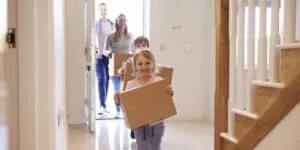CONSIDERING A MOVE TO GREATER VANCOUVER, BC?

Congratulations! Whether you are planning on moving to Vancouver BC for lifestyle or relocating to Vancouver BC for work purposes, you are in for a treat. Here is the COMPLETE GUIDE to moving to Vancouver, BC (British Columbia)!
Vancouver BC is consistently ranked in the top 5 “most livable cities in the World”. For many years, it was ranked #1, but in recent years has dropped a little in the rankings, primarily because of traffic congestion (a lot of people are relocating to Vancouver BC!) and the cost of living. Yes, life in Vancouver is EXPENSIVE with a Capital E … but many find that the rewards are worth it! Here is an excellent summary of why people move to Vancouver BC.
We created this comprehensive guide to help you with your move to this beautiful city. Preparation is the key; let us help get you oriented so you land on your feet!
- First Steps: establish yourself as a resident after relocating to Vancouver, BC.
(a) Apply for Medical Coverage through the Medical Services Plan (MSP), provided by the government of BC .
The online application will take you about 15 minutes to complete. There is normally a 3 month waiting period before coverage begins, but this is waived in some circumstances. Check the website to see if you qualify.
(b) Apply for a driver’s license through the Insurance Corporation of BC. Your driver’s license will also double your portal to accessing medical health services using a Personal Health Number on the back of the card.
(c) If you don’t drive, obtain a BC Services Card instead. A driver’s license or BC Services card will generally be required to access any government run services in BC (and many private ones as well). - Change all your officially listed addresses to your new address in BC.
I recommend using an online platform called MovingWaldo. MovingWaldo is Canada’s favourite app for address changes. It is completely free and it allows users to notify over 700 public and private organizations about their new address simultaneously. Before moving forward with this, create a checklist of the addresses that need to be changed. - Decide where you want to live after your move to Vancouver BC!
Greater Vancouver neighbourhoods are many and varied – that’s a big part of the charm of living here! We have put together a comprehensive pictorial and video tour of the Communities. On each community page, you will see photos, recreation opportunities, and also the types of homes that can be found there & the market statistics. Which brings you to your next step: find an empathetic Realtor who can assist you in finding a great place to live! We have helped many people relocate to Vancouver BC from all over the world. Give us a call – you’ll be pleasantly surprised! Would you like to understand how to go about purchasing a home? Start here on our Buying a Home page. There are many resources available on this website to show you the homes available and all the related information: Mortgage Calculator, Affordability Calculator, Property Transfer Tax Calculator, other details in regards to home ownership in our Real Estate 101 Blogs, Professionals who can help with the transaction, and Useful Links for related organizations. But better yet, give us a call and we’ll walk you through the process! - Want to Rent rather than Buy after relocating to Vancouver BC?
Looking to rent a home? Unlike in other parts of Canada, Realtors have only been permitted to assist in rentals since 2018. As a result, relatively few rentals are listed through Realtors, with most rentals being found through either Facebook Marketplace or Craigslist.
Rental housing is governed in BC by the Residential Tenancy Act (RTA). The RTA enshrines many powerful rights for the renter. For example, evicting a renter is quite difficult, and the renter has many remedies. Typically, landlords will sign leases for 6 months to a year, after which the rental changes to a month to month tenancy. The RTA specifically prohibits landlords specifying an end-date for the tenancy (a “fixed term tenancy”).Renters will be required to make a security deposit, which the RTA specifies may be a maximum of 1/2 of the monthly rental. The landlord is required to do a walk through where the condition of the unit prior to rental is established, and a walk through at the end of the tenancy. Only reasonable charges for damages are permitted by the RTA.
